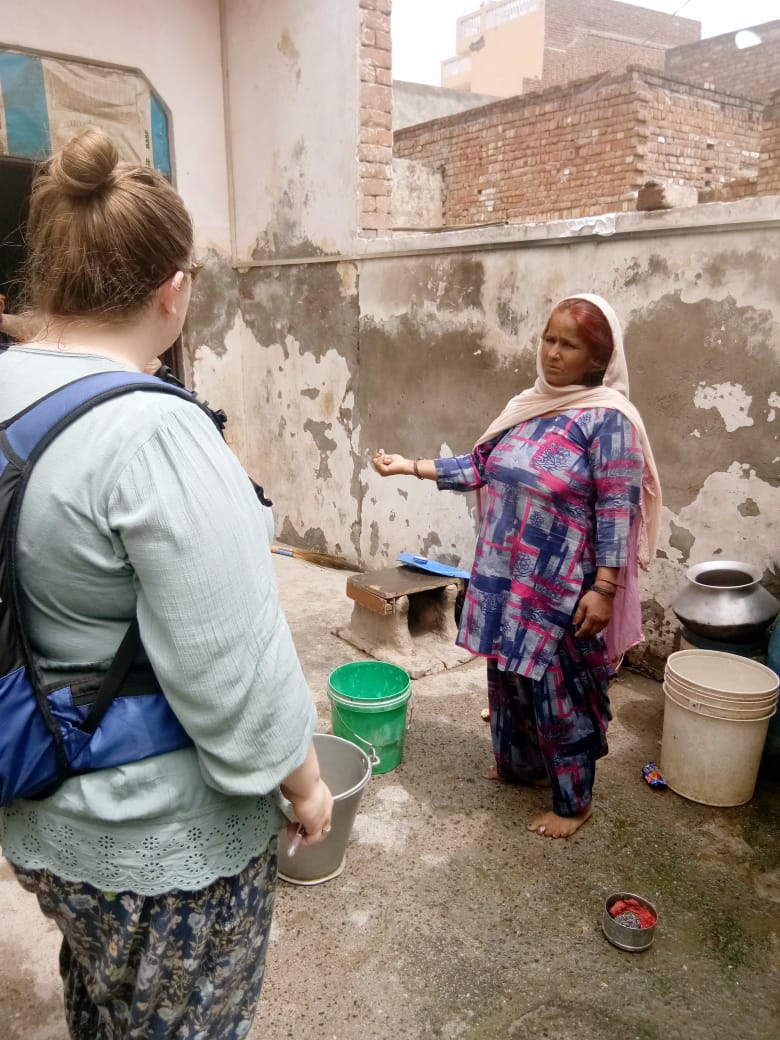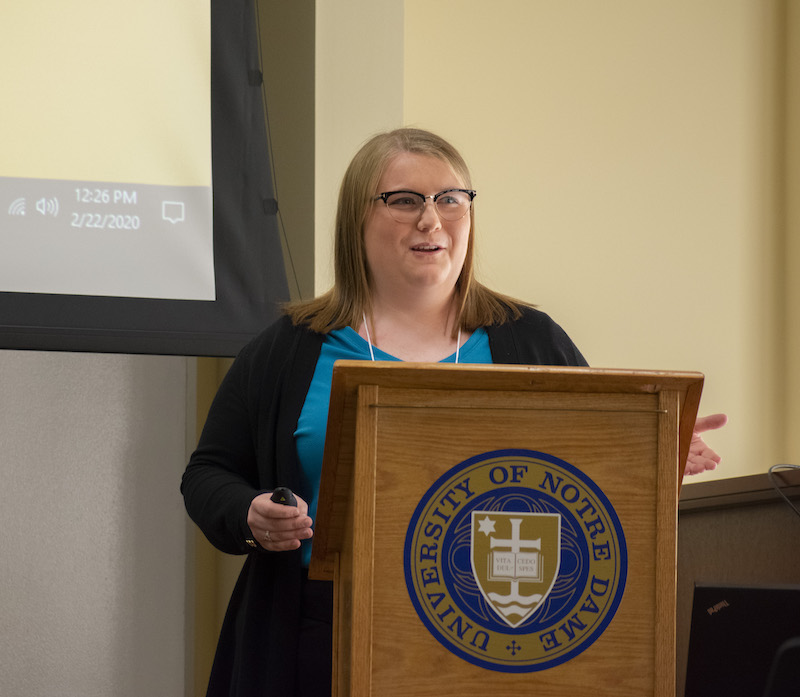
When Colleen Ballantyne ‘20 first told her friends about her upcoming research project in India, their responses ranged from guffaws and raised eyebrows to the predictable bathroom puns and potty humor.
Many, in fact, wrongly assumed she was joking because of the seeming oddity of her topic: how defecating in public affects women in rural India.
“This is very serious for them,” said Ballantyne, a biology major and a minor in the Kellogg Institute for International Studies’ International Development Studies (IDS) program. “It’s something we’re not necessarily comfortable talking about, or we think it’s a joke, but it’s very real and it carries real risks.”
For hundreds of millions of Indian women living in dire poverty, a lack of access to toilets can have dangerous or even life-threatening health and safety consequences.
Open defecation, or the practice of defecating outdoors, increases the spread of fecal-oral diseases like polio, cholera, and dysentery. And for women, the daily hunt for a safe, quasi-private spot to relieve themselves carries the additional risk of sexual assault.
Despite extensive government campaigns to build latrines, the practice of open defecation persists. Several studies have claimed it’s a matter of preference and many simply don’t want to use toilets.
But Ballantyne determined that’s not true. Through IDS, she spent eight weeks in India last summer studying how open defecation affects women. She found that most of her respondents desperately wanted latrines, but in India’s patriarchal society they felt powerless to do anything about it.
 “Almost every woman I spoke with who didn’t have a latrine was actively trying to get one by any means necessary,” she said. “They all realized the risks associated with open defecation. They just didn’t have any other options.”
“Almost every woman I spoke with who didn’t have a latrine was actively trying to get one by any means necessary,” she said. “They all realized the risks associated with open defecation. They just didn’t have any other options.”
Open defecation is a fact of life in much of the developing world, where, according to the World Health Organization, a staggering 1.1 billion people are forced to relieve themselves outdoors because they have no toilet.
More than half of that number live in India. For many, their latrines are simply open fields outside their villages.
Ballantyne, who first learned about open defecation as a junior during a class on global health, was struck by the lack of scholarly literature on how the practice impacts females – likely because most information was gathered from male heads of household.
The lack of attention on gender became the impetus for her field research and senior capstone project, “When ‘Number Two’ is Public Enemy Number One: A Study on How Women Experience the Consequences of Open Defecation in Rural North India.”
Through a Kellogg/Kroc Undergraduate Research Grant, Ballantyne traveled to the state of Haryana, splitting her time between two remote villages – one considered traditional, and the other more developed and socially progressive – where she surveyed more than 100 women on their defecation practices. The project was meant to compare how women in different settings were impacted by open defecation.
“Women hadn’t been given much voice in the research, and I wanted to change that,” she said.
Susan Ostermann, Ballantyne’s capstone advisor and an assistant professor of global affairs at the Keough School of Global Affairs, said open defecation has received some attention from scholars, particularly in India, where it remains a serious problem.
“What is novel about Colleen's work is the gender angle she brings to the table and her interdisciplinary approach,” she added.
With the help of an interpreter, Ballantyne asked the women of Haryana a number of questions related to gender. Among them: Had they ever felt unsafe or experienced violence while defecating?
Many admitted that they had, though most declined to give details about being sexually assaulted. Ballantyne said she was surprised at how open they otherwise were, particularly about the shame and stress they felt over defecating in public.
Because they had to travel outside their villages to defecate, many would do so only once a day. They often timed their trips to relieve themselves to hours when men weren’t working in the fields – usually in the early morning or evening. The women also tried to avoid going under the cover of darkness, when the danger of being attacked was greatest.
Ballantyne noted that delayed defecation can cause health problems, particularly for women: “Any time you’re not able to relieve yourself when you need to, you’re at risk for different things – urinary tract infections, other reproductive infections.”
Perhaps her most surprising findings related to the role systemic inequality and poor governance play in perpetuating open defecation.
One village leader who spoke to her denied the obvious shortage of latrines among poor residents.
When funding was available to build latrines, she learned that widows and other women in households without a male often had nobody to lobby community leaders on their behalf. And women in lower castes were less likely to get funding for sanitation, especially if their community leaders were from a higher caste.
“The women have less political power in their villages,” she said.
 Ballantyne has shared her findings with Ashoka University in Haryana, along with her recommendation that local governments use a neutral outside party to distribute funds for building latrines. Her research will likely be shared with other Indian scholars who work in the policy realm.
Ballantyne has shared her findings with Ashoka University in Haryana, along with her recommendation that local governments use a neutral outside party to distribute funds for building latrines. Her research will likely be shared with other Indian scholars who work in the policy realm.
Ballantyne was awarded Kellogg’s Bartell Prize for Undergraduate Research on Poverty and Development for her project. She presented her findings at the Human Development Conference at the University of Notre Dame in February and hopes to present at the Water for Food Global Conference.
Ostermann called Ballantyne’s work significant, especially for such a young scholar: “This is not the type of project your average undergraduate can handle.”
“She has brought quite a bit of methodological rigor to the table and there are policy implications associated with her findings. Certainly her findings have the potential to make a difference in her fieldwork villages and beyond, and that's quite impressive for an undergraduate-level research project.”
After graduation, Ballantyne will serve as an AIDS mitigation officer in the Peace Corps in Eswatini, the country formerly known as Swaziland. She plans to eventually earn a master’s degree in public health, and said the IDS minor reinforced her passion for development while helping her hone her areas of interest – water, hygiene, and global health – within the field.
Ballantyne called the field research component of the IDS minor “invaluable.”
“The independent study aspect of IDS makes this one of the most beneficial paths on campus for career development,” she said.





